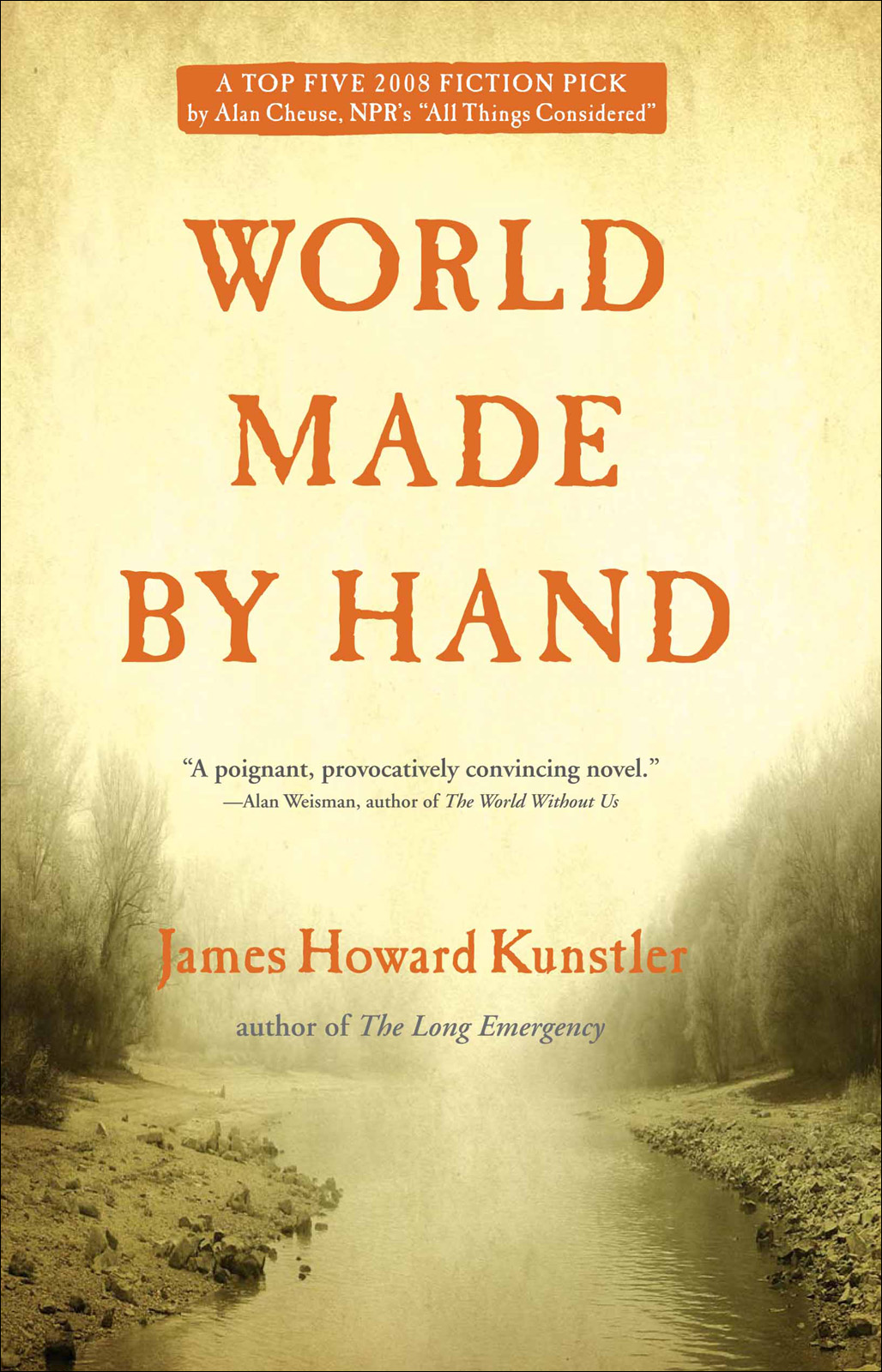
World Made by Hand
The World Made by Hand Novels
فرمت کتاب
ebook
تاریخ انتشار
2009
نویسنده
James Howard Kunstlerناشر
Grove Atlanticشابک
9781555848378
کتاب های مرتبط
- اطلاعات
- نقد و بررسی
- دیدگاه کاربران
نقد و بررسی

October 15, 2007
Kunstler’s name is mostly associated with nonfiction works like The Long Emergency
, a bleak prediction of what will happen when oil production no longer meets demand, and the antisuburbia polemic The Geography of Nowhere
. In this novel, his 10th, he visits a future posited on his signature idea: when the oil wells start to run dry, the world economy will collapse and society as we know it will cease. Robert Earle has lost his job (he was a software executive) and family in the chaos following the breakdown. Elected mayor of Union Grove, N.Y., in the wake of a town crisis, Earle must rebuild civil society out of squabbling factions, including a cultish community of newcomers, an established group of Congregationalists and a plantation kept by the wealthy Stephen Bullock. Re-establishing basic infrastructure is a big enough challenge, but major tension comes from a crew of neighboring rednecks led by warlord Wayne Karp. Kunstler is most engaged when discussing the fate of the status quo and in divulging the particulars of daily life. Kunstler’s world is convincing if didactic: Union Grove exists solely to illustrate Kunstler’s doomsday vision. Readers willing to go for the ride will see a frightening and bleak future.

November 15, 2007
This vision of life in upstate New York after the fall of civilization is poignant and personal compared with the main themes in other recent postapocalyptic novelse.g., bare-knuckles survival in Cormac McCarthy's "The Road" charismatic leadership in David Lozell Martin's "Our American King" desperate migration in Jim Crace's "The Pesthouse" Kunstler instead presents a detailed, granular perspective on the consequences that the breakdown of the government and the economy would have on everyday domestic living. He offers a real look at how people and communities would actually survive without the modern economic infrastructure upon which we rely. This novel does illustrate the violence of a lawless future, but it does so in a way that seems plausible, while maintaining some sense of hope. There is also a little mystery thrown in to sweeten the pot. This future is not completely dire, but it's grim enough to make us seriously consider how we would get by in a world made by hand. Highly recommended for all public libraries. [See Prepub Alert, "LJ"11/15/07.]Henry Bankhead, Los Gatos P.L., CA
Copyright 2007 Library Journal, LLC Used with permission.

January 1, 2008
Bombs have decimated major American cities, automobiles no longer exist, and major commodities such as oil have vanished. Kunstlers speculative rendering of a dystopianworld feels a bit likeMad Max meets Little House on the Prairie. Scrap metal and other building supplies are controlled and allocated by a gang of pseudoHells Angels (they fought over the stuff that was left), while the town of Union Grove, New York, struggles with the new modes of existence: small parcel gardening provides the food, and all tools are fueled by human brawn. Kunstler raises some interesting social critiques, including a nice blend of a world both dystopian and bucolic, but the hokey pioneer dialogue and plodding story are too reminiscent of the protagonists dream acquisition: a horse. The writing is at times excitingWere historys road killyet it too frequently erodes into sentimentality. Kunstler paints a nice picture of how we might live in the wake of an apocalyptic collapse. Unfortunately, this novel falls short of becoming much more than an exercise in speculation.(Reprinted with permission of Booklist, copyright 2008, American Library Association.)

























دیدگاه کاربران